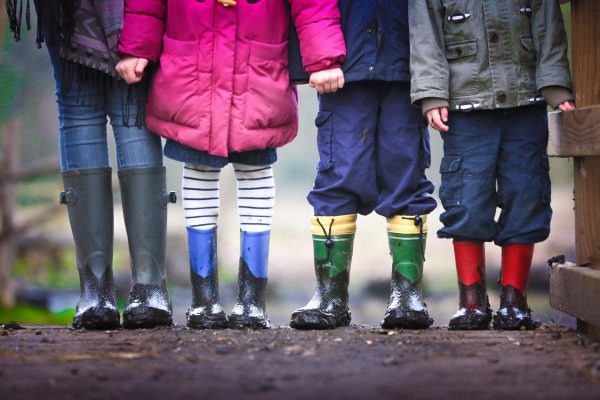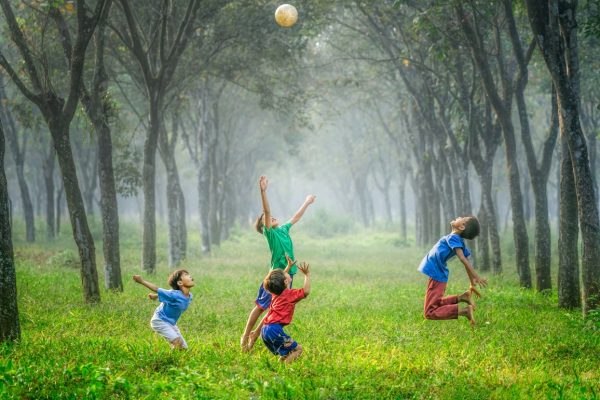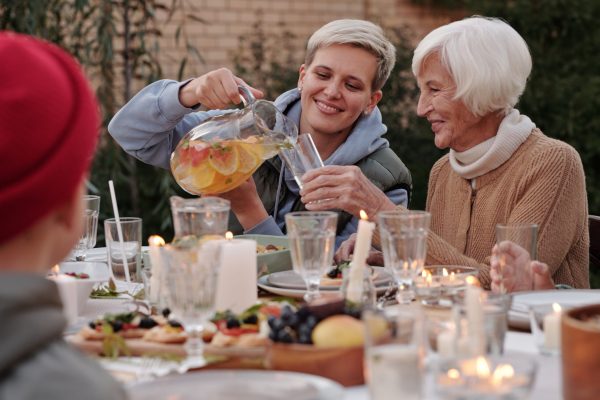Four Questions Through the Lens of Food Justice:
- Why do we eat much on this night and others eat little?
- Why do we eat the unleavened bread and throw our leavened bread away instead of donating it to the food pantry?
- Why do we dip our food into sauce and salt and charosetThe fruit and nut paste included in the Passover seder to represent the mortar the Israelite slaves used in Egypt. In Ashkenazic tradition, nuts are ground with apples and wine to make haroset for the Passover seder plate. Sephardic and other Middle-Eastern haroset typically uses dates as the base, often seasoned with ground ginger or cinnamon. while others may not even have a crumb to dip?
- Why do we lay back, relax and eat the food that comes to us so easily while others work to buy bread for their family?
Four Children Through the Lens of Food Justice:
The Generous Child
The generous child knows all about food justice and donates much of their monthly allowance to charity. This child encourages their parents to volunteer, brings the most cans in during school food drives, and never eats too much.
The Spoiled Child
The spoiled child knows and understands food justice, but chooses not to care. This child is selfish, easily upset by not getting what they want, and is likely a picky eater. This child’s catch phrases are “So what?!” and “That’s not my problem.”
The Stoical Child
The stoical child may know something about food justice, may care, but does absolutely nothing to help. This is the kid who writes “bring in cans” every day during the fundraiser in their planner, but forgets each time.
The Child Who Doesn’t Know
The child who doesn’t know is the kid who lives life happily and ignorantly with absolutely no clue that there are people who don’t/can’t do the same. This child may have an overprotective parent that shelters them from the challenges of life.
Jessica Steinberg is a student in the shulSynagogue (Yiddish) school of Kehilat HaNahar.












